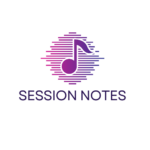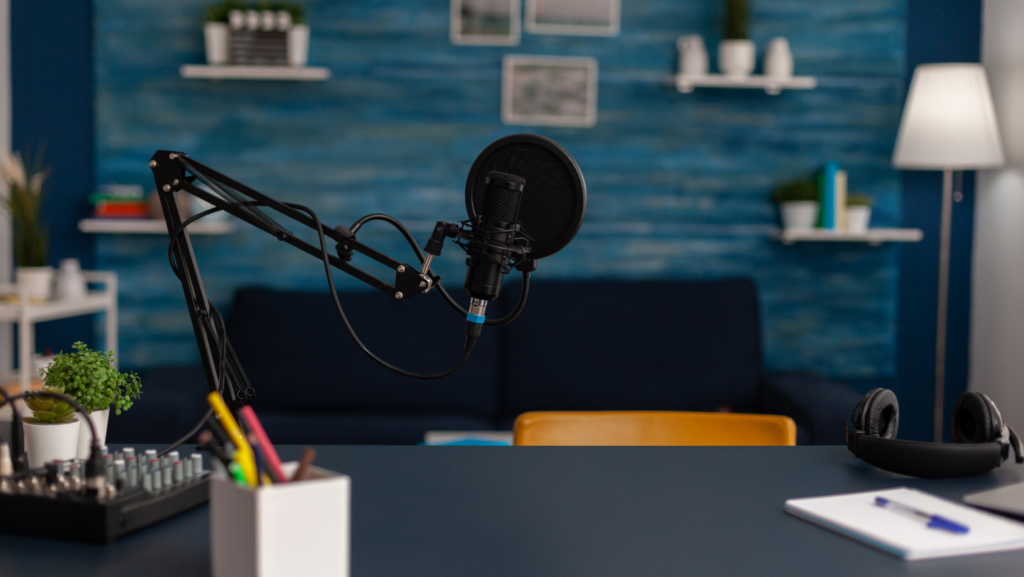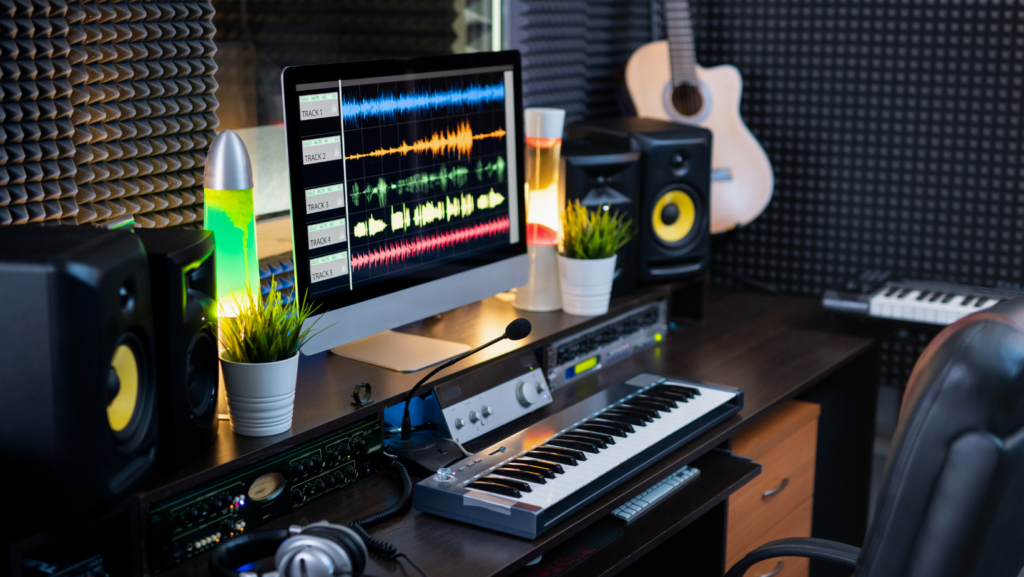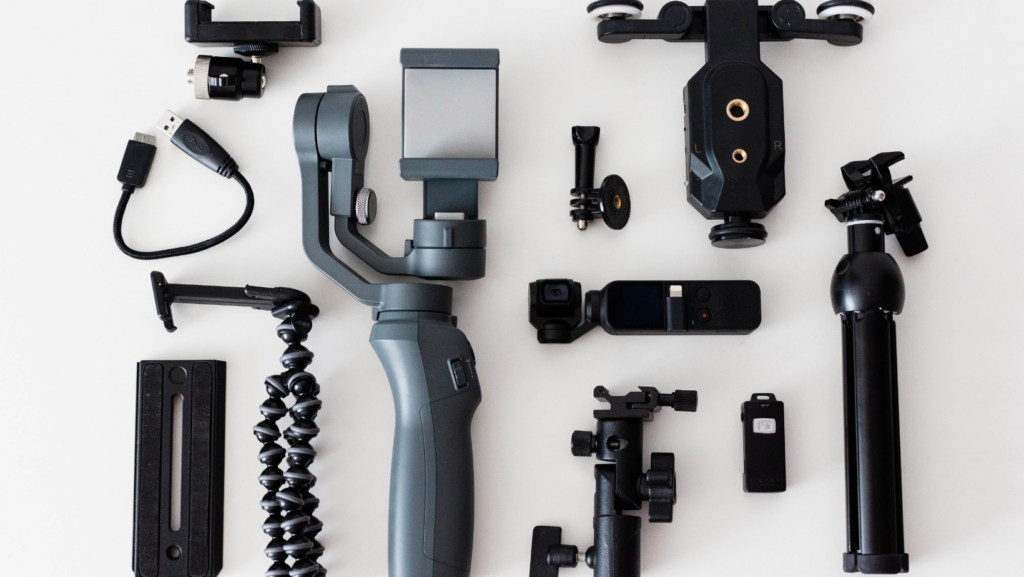Dreaming of producing your own music right from the comfort of your home? You’re not alone. In this digital age, more and more people are turning to at home recording studio essentials to bring their musical visions to life. But setting up a home studio isn’t as simple as buying a microphone and hitting record.
In this guide, we’ll explore the essential gear you’ll need to create at home recording studio essentials that’s both functional and budget-friendly. We’ll delve into everything from choosing the right audio interface to finding the perfect studio monitors. Whether you’re a budding musician or a seasoned producer, this article will help you navigate the world of home recording with confidence and ease. So, let’s get started on your journey to creating high-quality music right at home.
At Home Recording Studio Essentials
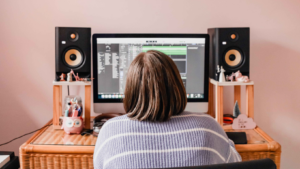
Piecing together a home recording studio can be an exciting task. It’s essential to understand the basic objectives and capabilities to fully exploit this resource.
The primary objective of at home recording studio essentials isn’t only for music production. It’s also designed for voice-overs, podcasts, and even audio for videos. Essentially anything requiring high-quality audio recording benefits from a home studio setup. Imagine the freedom to control your sound environment in the comfort of your own home. A well-planned studio serves many purposes, suits the artist’s unique needs, and provides a creative space to work in without external interruptions.
At Home Recording Studio Essentials
The arsenal of at home recording studio essentials comes from a variety of quality components. Each piece has a unique substance, allowing artists to capture, shape, and play back sound with precision. Following, we examine five essential pieces for any home studio.
Importance of Good Quality Equipment
Quality equipment forms the groundwork for any home studio. It optimizes audio signal, reduces interference, and increases longevity. To illustrate, microphones of superior quality can accurately capture vocals and instruments, while well-built audio interfaces facilitate data transmission with miniscule latency, ensuring a seamless recording experience.
The Heart of the Studio: Audio Interface
Audio interfaces provide the means to record analogue audio, convert it into digital format, and transmit it to your computer. Key characteristics to consider include number of inputs and outputs, the type of connection (USB, Firewire, etc.), and the quality of converters. For example, the Focusrite Scarlett 2i2, with high-quality preamps and robust construction, epitomizes a perfect blend of quality and affordability.
The Backbone of Sound: Microphones
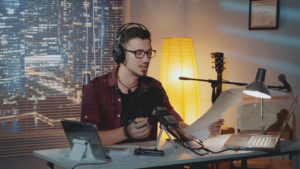
Microphones translate acoustic energy into electrical energy, a process central to recording sound. Boasting varying designs and tonal characteristics, it’s imperative to choose the one that best suits the intended use. Take for instance, Shure SM58, a dynamic microphone adept at capturing loud sound sources, or the Audio-Technica AT2020, a condenser microphone excels at capturing subtle details.
The Medium of Translation: Headphones
Headphones provide an intimate acoustic environment, imperative for critical listening during tracking and mixing stages. Good studio headphones offer flat response for accurate representation of sound. Renowned in recording circles, the Beyerdynamic DT 770 Pro headphones offer a comfortable closed-back design with crisp rendition of frequencies.
Budgeting for an At-Home Recording Studio
Building an at home recording studio essentials incorporates careful consideration of budget limitations. This section enumerates the process of accurately estimating costs and making the most of your budget.
Estimating Costs Accurately
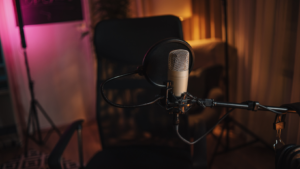
Establishing a home recording studio involves substantial financial investment. Several factors considerably influence the total cost. Firstly, the quality of the equipment considerably dictates the price. For instance, a Shure SM58 microphone comes at approximately $99, while a higher-end microphone like the Neumann TLM 102 costs around $700.
Secondly, incorporating additional features like an advanced DAW or premium plug-ins into the studio setup increases the price. Reasonably, Pro Tools, a professional-grade DAW, costs almost $600, while FL Studio, more suited for beginners, is priced around $99.
| Equipment Type | Example | Approximate Cost |
| Microphone | Shure SM58 | $99 |
| High-End Microphone | Neumann TLM 102 | $700 |
| DAW | Pro Tools | $600 |
| Beginner’s DAW | FL Studio | $99 |
| Acoustic Treatment Kit | Primacoustic London 8 Room Kit | $250 |
